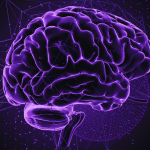
20 Signs of an Omega-3 Fatty Acid Deficiency (Do Not Ignore)
September 29, 2025
7 supplements to increase Blood flow to Brain
October 19, 2025Shocking Ways Omega-3 Impacts Brain Function.
Omega-3 fatty acids are a key part of every cell membrane, and they have a powerful effect on the brain.
If you want clearer thinking, sharper memory, and a steadier mood, making Omega threes a priority really pays off.
In this video, we’ll explore 10 shocking ways Omega threes impact your brain, backed by scientific research.
Disclosure: Some of the links below are affiliate links. This means that, at zero cost to you, we will earn an affiliate commission if you click through the link and finalize a purchase.
1. Reduces Depression and Anxiety
Omega-3s, particularly EPA, eicosapentaenoic acid, are crucial for regulating mood and reducing the risk of mental health conditions like depression and anxiety.
These healthy fats help to reduce neuroinflammation in the brain, which is increasingly recognized as a major factor in mood disorders.
They also help to regulate the signaling pathways of key neurotransmitters like serotonin.
In one study, researchers pooled 20 studies with about 2300 adults with Major Depressive Disorder and found that omega‑3 supplements reduced depressive symptoms compared with placebo, with a moderate overall effect; the biggest improvements were in people with moderate to severe depression.
2. Improves Cognitive Function and Memory
The brain is rich in Omega-3 fatty acids, particularly DHA (docosahexaenoic acid), which is a primary structural component of brain cell membranes.
DHA is vital for maintaining the fluidity and flexibility of these cell membranes, which is essential for rapid and efficient communication between brain cells.
This process is known as synaptic signaling, and it is the foundation of learning and memory.
In one study, researchers used a double‑blind crossover trial and found that 30 days of EPA‑rich omega‑3 made young adults faster and more accurate on a Stroop task while lowering brain activation in key areas, suggesting the brain worked more efficiently.
3. Modulates Brain Inflammation.
Chronic, low-grade neuroinflammation is a key feature of many brain disorders, including depression, anxiety, and even migraines.
Omega 3s act as powerful anti-inflammatory agents by being converted into soothing molecules like resolvins and protections that actively turn off the inflammatory response in the brain.
In one study, the researchers show at the cellular level that omega‑3 fats calm brain inflammation by cutting pro‑inflammatory signals, reducing release of “danger” molecules like HMGB1 and S100β, and boosting pathways that actively switch inflammation off.
The findings suggest that by improving the quality and duration of sleep, Omega-3s indirectly enhance cognitive function and overall mental well-being.
4. Supports Vision and Eye Health
The eyes and brain are closely linked, and ocular surface nerves are important for clear vision and protective reflexes.
Higher omega‑3 levels, particularly DHA, are associated with healthier corneal nerve structure, which supports corneal sensation and the eye’s ability to maintain a stable surface for good visual function.
In one study, the researchers measured blood omega‑3 levels and corneal health in 47 adults (with and without diabetes) and found that a higher Omega‑3 Index and DHA were independently associated with longer corneal nerve fibre length, which is linked to overall eye health.
5. Modulates the Stress Response
Omega-3s help the brain regulate the hypothalamic–pituitary–adrenal axis (HPA), the body’s main stress‑response system, by lowering chronic inflammation and supporting adrenal function, this can reduce the intensity and duration of stress responses and may lead to lower average cortisol levels.
In one study, the researchers measured plasma omega‑3 and DHA in 2,724 adults and found that lower omega‑3 levels were associated with higher inflammation markers, higher evening cortisol, and higher heart rate.
6. Enhances Blood Flow to the Brain
Omega-3s play a vital role in optimizing cerebral blood flow (CBF), which is the mechanism that delivers essential oxygen and nutrients to your brain cells.
They achieve this by promoting the flexibility of blood vessels and increasing the production of nitric oxide, a compound that signals the arteries to relax and widen.
Better blood flow means your neurons are fueled more efficiently, leading to faster information processing.
In one study of 90 inactive older adults, people who took omega‑3 supplements did not show the usual age‑related drop in blood flow to the brain during exercise, while those who didn’t take supplements did, suggesting omega threes will help keep brain blood flow steady as we get older.
7. Promotes Neurogenesis (New Brain Cell Growth)
Omega-3 fatty acids are linked to the production of Brain-Derived Neurotrophic Factor (BDNF), a critical protein often referred to as “Miracle-Gro” for the brain.
BDNF stimulates neurogenesis, which is the growth of new neurons, and supports the survival and maintenance of existing ones.
This process is crucial for long-term memory and resilience.
In one meta‑analysis of 12 randomized controlled trials with 587 participants, the researchers found that omega‑3 supplementation significantly increased serum BDNF, with larger effects seen at higher daily doses of around 2000 mg.
8. Reduces Migraine Frequency and Severity
Migraines are often linked to inflammation and abnormal blood vessel function in the brain.
Due to their potent anti-inflammatory effects and their role in regulating blood vessel health, Omega threes can act as a natural preventive measure against painful headaches and migraines.
They reduce the brain inflammation that starts a migraine, making attacks less likely and less severe.
In one randomized trial of 182 adults with frequent migraines, people who ate diets higher in omega threes, and one group who also lowered omega‑6 intake had fewer headache days each month and fewer hours of headache compared with a control diet.
9. Supports Myelin Sheath health (White Matter Health)
The myelin sheath is a protective, fatty layer that wraps around nerve fibers in the white matter of the brain.
It acts like insulation on an electrical wire, allowing nerve signals to travel quickly and efficiently.
Omega-3s, as essential fats, are crucial for the development and maintenance of this myelin sheath, thereby supporting the speed of communication within the brain.
In one study, mice fed an omega‑3–rich diet for two months before a controlled brain injury recovered better, they had fewer behavior problems, less nerve‑cell loss, lower inflammation, and their myelin stayed intact so nerve signals kept flowing.
10. Protects Against Neurodegeneration
Omega-3s act as powerful brain defenders, shielding your brain cells from damage.
They help to combat oxidative stress and inflammation, two key processes that contribute to the progression of age-related cognitive decline and neurodegenerative disorders.
By strengthening the cell membranes, Omega-3s help neurons resist damage and maintain their integrity as you age.
How to Take an Omega-3 Supplement
For general brain and heart health, a typical daily dosage of combined EPA and DHA ranges from 1,000 mg to 2,000 mg.
However, research shows that for specific conditions, such as high blood pressure or significant depression, higher doses, often between 2000 mg and 3000 mg of EPA and DHA may be required to see the strongest benefits.
It is always crucial to consult with a healthcare professional before starting any supplement, especially before taking a high dosage.
